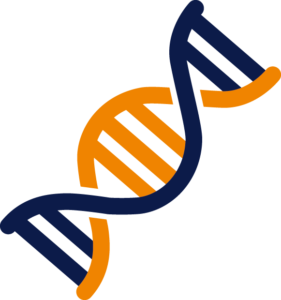- Posted: 21 December 2020
- Tagged: Research Updates
Science News
A look back on some of the biggest news in prostate cancer research from the last six months.
CRISPR-Cas9 Researchers Win Nobel Prize
The 2020 Nobel Prize for Chemistry has been awarded to Emmanuelle Charpentier and Jennifer A. Doudna for the discovery and development of the gene-editing tool CRISPR-Cas9. CRISPR-Cas9 has already revolutionised cancer research and is being used by scientists to decode the genetics of cancer. The tool has two parts: a small RNA sequence and Cas9. The RNA sequence guides the Cas9 to a specific part of the genome and Cas9 then acts as ‘molecular scissors’ and cuts the DNA so that this part of the sequence can be changed. By using CRISPR-Cas9 to edit certain genes, researchers can observe the effect this has on the development or progression of cancer. This enables them to identify the mutations important in driving cancer, which can then be translated into new treatments. PCR-funded scientists Dr Jorge de la Rosa and Dr Harveer Dev are both using CRISPR-Cas9 to investigate the genetics that underpin prostate cancer and treatment response.
Timing of Radiotherapy
Following prostatectomy, some men will be offered radiotherapy to ensure that all the cancer cells have been eliminated and reduce the risk of cancer returning. This is known as adjuvant radiotherapy. Others may opt to receive salvage radiotherapy if their cancer returns. Researchers at University College London conducted a review based on three clinical trials comparing the outcomes of men who had undergone adjuvant radiotherapy with men who had undergone salvage radiotherapy. They found men who received adjuvant radiotherapy following surgery did not have better outcomes after five years than those who received early salvage radiotherapy. In fact, event-free survival was 89% for adjuvant radiotherapy and 88% for early salvage radiotherapy. Dr Claire Vale, who led the review, explained: ‘Our findings suggest that following surgery, patients whose cancer is confined to the prostate, or has spread only to nearby tissues or organs, can safely be spared routine post-operative radiotherapy and its associated side effects. Radiotherapy need only be given to men if they show early signs that the cancer may be returning.’

Prostate Cancer and Your Waistline
Large waistlines or excess belly fat may be linked to a higher risk of poor outcomes from prostate cancer. A study from the University of Oxford monitored the health of 218,225 men, who were initially cancer-free, over a 10-year period. Although the researchers found no clear link between prostate cancer outcomes and total body fat or BMI, they did find a link with the amount of body fat around the waist or the belly. Those in the top 25% for waist circumference had much poorer outcomes than those in the bottom 25%. More research is needed to confirm the findings of this study and the researchers hope to conduct further research into the link between body fat and aggressive forms of prostate cancer.

Genes Driving the Spread of Prostate Cancer
A recent study, published in Nature Cancer, identified 16 genes that work together to drive the spread of prostate cancer. Researchers from Rutgers University in New Jersey analysed prostate cancer cells taken from both mice and humans. They found certain gene patterns were associated with prostate cancer spreading to other parts of the body, including the bones. Screening for these genes in people diagnosed with prostate cancer could identify those who are most at risk of developing advanced disease and help inform treatment options. Dr Antonina Mitrofanova, one of the researchers, explained: ‘Our results show that molecular profiling at the time of diagnosis can help inform more personalised therapy leading to better outcomes for those with this advanced form of disease.’ The researchers also believe the genes could be used to identify which patients are more likely to respond to hormone therapies.
Ipatasertib for Aggressive Prostate Cancer
The experimental cancer drug Ipatasertib has been undergoing a major phase-III clinical trial. Recent results suggest that when used alongside the standard hormone treatment abiraterone, Ipatasertib could treat an aggressive group of prostate cancers. The trial has tested whether the drug can be used to treat people with advanced prostate cancer in which the PTEN gene has been lost. In individuals with PTEN loss cancer cell growth is increased, and these tumours can be difficult to treat. A protein called Akt is involved in the increased cancer cell division. Ipatasertib works by binding Akt, and this can stop cancer cells dividing. The trial found that combining Ipatasertib with abiraterone successfully reduced disease progression. These early results are encouraging, and the overall survival benefit will be determined as the trial continues.
This story first appeared in the Winter 2020 issue of our newsletter